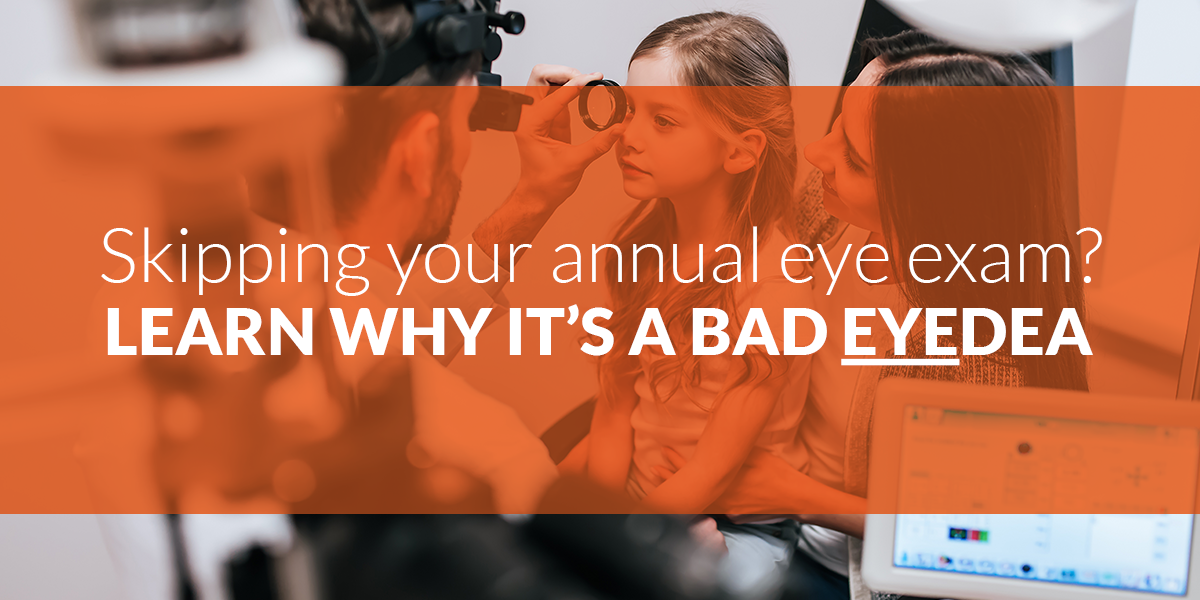Do I really need an annual eye exam?
People ask this all the time. And it’s a great question!
Simply put, annual eye exams are a must — and not just because of what they can do for your eyes! That’s right, even if you do not wear glasses or contacts you should have an annual eye exam.
A good eye exam can help your optometrist diagnose and treat diseases and disorders affecting your vision, as well as identify general health conditions that are often first detected through an eye exam.
That’s why eye doctors recommend you get an eye exam once a year. In fact, comprehensive eye exams (more on what those are later) can be used to detect and diagnose over 18 serious conditions at their earliest stages, including:
- Diabetes
- Tumors
- Glaucoma
- Hypertension
- Neurological conditions
- Retinal disorders
Some eye diseases, like glaucoma, only show symptoms when the condition is advanced and difficult, or even impossible, to treat. That’s why an annual eye exam is so important.
Of course, not all eye exams were created equal. Beware of marketing that lures you in with a free eye exam!
Only a comprehensive eye exam will offer you a complete and thorough assessment capable of detecting and diagnosing diseases. A comprehensive exam is like having a physical for your entire eye and visual system. Determining your prescription is only one small part. Your optometrist does a binocular vision assessment, a color evaluation, a neurological assessment and much more!
A vision screening, on the other hand, cannot detect or diagnose disease. It’s a brief, simple refractive procedure that’s helpful in determining a patient’s prescription. The refraction determines your level of hyperopia (farsightedness), myopia (nearsightedness), astigmatism and presbyopia.
Since yearly comprehensive exams can start to add-up cost-wise, many consumers will go looking for the least expensive option. Unfortunately, the least expensive option is usually not the most effective option, as it is often just a vision screening. Additionally, the money saved by opting out of a comprehensive exam can actually cost you more in the long run.
Remember how we said that comprehensive eye exams are an important preventative measure?
Ten thousand employees were surveyed regarding their healthcare costs over the course of just one year. Can you spot the difference between the costs of those who had a comprehensive eye exam and those who didn’t?

Image source: http://www.visioncaredirect.com/enroll/top-notch-care/
Patients who had a comprehensive exam (and had the advantage of early-stage diagnosis for eye conditions and other serious health issues) ended up saving $5,000 in health care costs compared to those who did not have a comprehensive exam!
That’s why Vision Care Direct plans include an annual comprehensive eye health exam. Don’t risk your health with other plans that only provide basic vision screening.
Is it time to book your next eye exam?
 [formlift id=”661″]
[formlift id=”661″]

